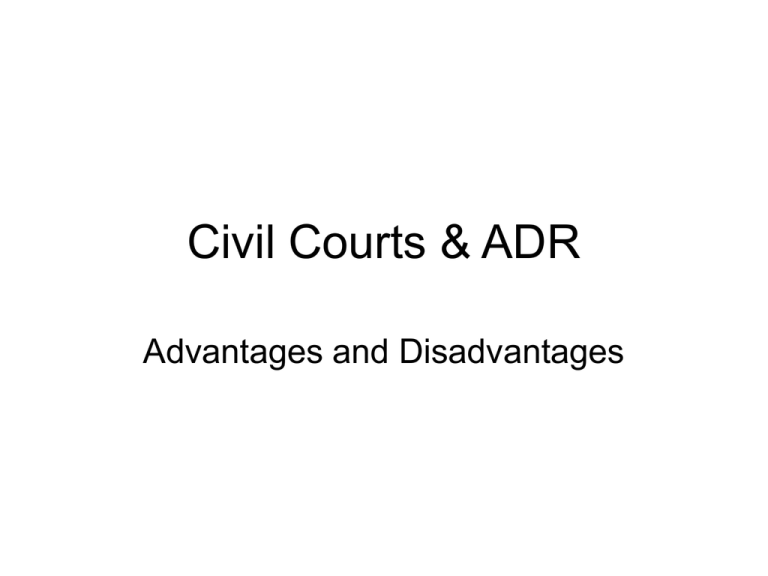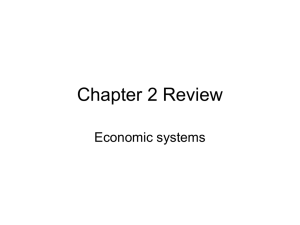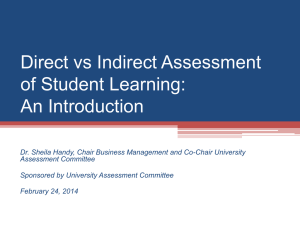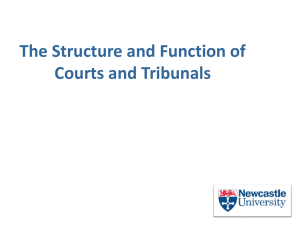Civil Courts & ADR - Teaching With Crump!
advertisement

Civil Courts & ADR Advantages and Disadvantages Learning Objectives • I will be able to state the advantages and disadvantages of each form of civil dispute resolution • I will be able to give examples that illustrate these advantages and disadvantages • I will be able to compare the courts with each of the other forms of dispute resolution • I will be able to evaluate civil dispute resolution Civil Courts Advantages • Legal expertise/experience – Judges in the county or high court have lots of experiences both as lawyers and judges – Final decision will have a detailed explanation • Availability of public funding – Public funding is available for some civil cases (financial claim related to divorce) – Granted by the Community Legal Service • Remedies – – – – Civil court has the power to award remedies Damages (compensation) Injunction (cease an act or activity) Specific performance (complete a contract) CPR in book Disadvantages • • • • • • • Lack of technical knowledge Slow process Lack of flexibility in court process Need for lawyers General cost Adversarial process Publicity Tribunals Advantages • Expertise – Chairperson and lay members will have experience in the area • Reasons for decisions – S.10 Tribunals and Enquiries Act 1992 • Cost • Informality • Flexibility – No rules of precedent or evidence • Speed – Final hearing usually completed in one day • Privacy • Congestion Disadvantages • Influence of chairperson on lay members • Lack of availability of public funding – One member only may be able to afford a lawyer • Appeals procedure – There are different rights and routes for different tribunals • Inconsistencies in decisions – no precedent or rules of evidence • Publicity – Hearings might not get the consideration they deserve • Formality – Franks Committee- chairperson must now be legally qualified – can be lawyers present – can be heard like the courtroom – all adds to the formality Arbitration Advantages • • • • • • • • Expertise Privacy Convenience Enforceability of the award Informality Speed Cost Cost-saving to the state Disadvantages • Lack of legal expertise – Courts rely on witnesses for expert evidence • Inconsistencies in decisions • Cost • Appeals – Ss68 and ss69 of the 1996 Act mean limited grounds to appeal on – prolongs time and cost • Lack of awareness/popularity Mediation Advantages • Speed and convenience – Parties arrange it themselves saving time • Lack of formality • Empowerment – Does not force a decision upon the parties, it is up to them to come to an agreement. Leads to both parties being satisfied – Professor Hazel Genn (2002) • Cost – Public funding is available for mediation in some family cases • Expertise – Mediators are trained specialists • Privacy Disadvantages • Imbalance of power – One party usually stronger financially or emotionally • Lack of legal expertise – Mediator may not have expertise on complicated areas of law • Lack of certainty – No need to agree with each other which leads to costs and court – Paul and Heather McCartney • Enforceability Conciliation Advantages • Pro-active element of conciliator – Conciliator offers neutral advice • Expertise – Conciliator will have expert knowledge on the area under dispute – ACAS are experts on employment law Disadvantages • Imbalance of power – One or both parties may feel the conciliator is not neutral in their suggestions • Others are similar to mediation Negotiation Advantages • Speed – The longer you wait, the more problems can be exaggerated • Formality – Can find solutions that may not be allowed in the courts • Cost • Privacy Disadvantages • • • • Imbalance of power Lack of legal expertise Lack of certainty Enforceability











